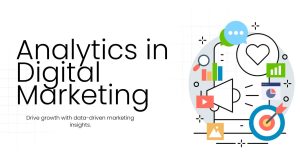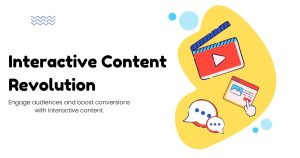What is the Center for Emotional Marketing?
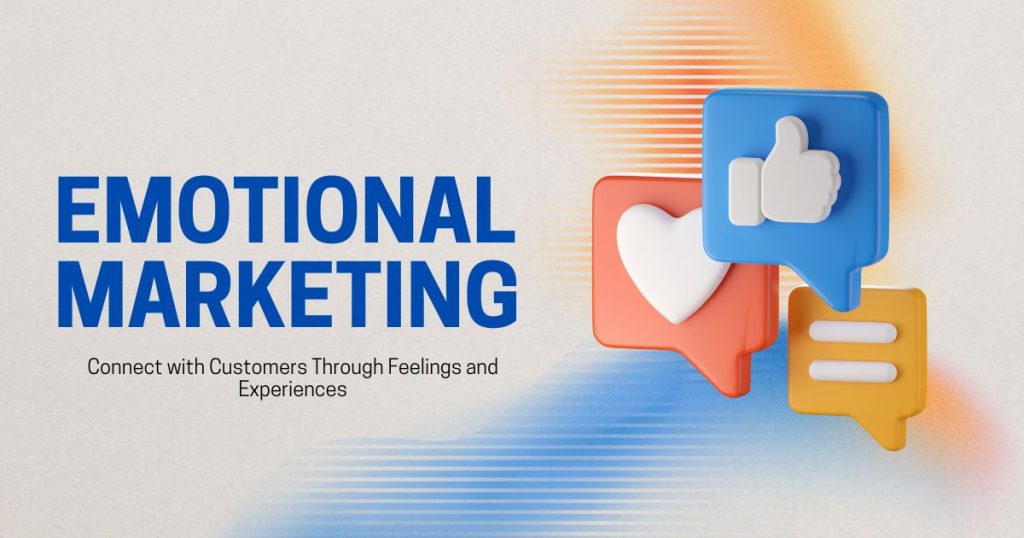
Centers for emotional marketing help brands understand and leverage consumer emotions to create authentic, effective campaigns, build loyalty, and drive better business results across industries.
Modern marketing has evolved far beyond simple product features and competitive pricing. Successful brands understand that purchasing decisions are driven primarily by emotions, not logic. This shift has given rise to specialized research institutions and educational centers focused on understanding the emotional drivers behind consumer behavior.
The Center for Emotional Marketing represents a pioneering approach to understanding how emotions influence purchasing decisions and brand loyalty. By studying the psychological and neurological foundations of consumer behavior, these centers provide marketers with evidence-based strategies to create more compelling and effective campaigns.
Whether you’re a marketing professional, business owner, or student of consumer psychology, understanding the principles taught by centers for emotional marketing can transform how you connect with your audience. This comprehensive guide explores what these centers offer, their methodologies, and how their insights are reshaping the marketing landscape.
Understanding Emotional Marketing Foundations
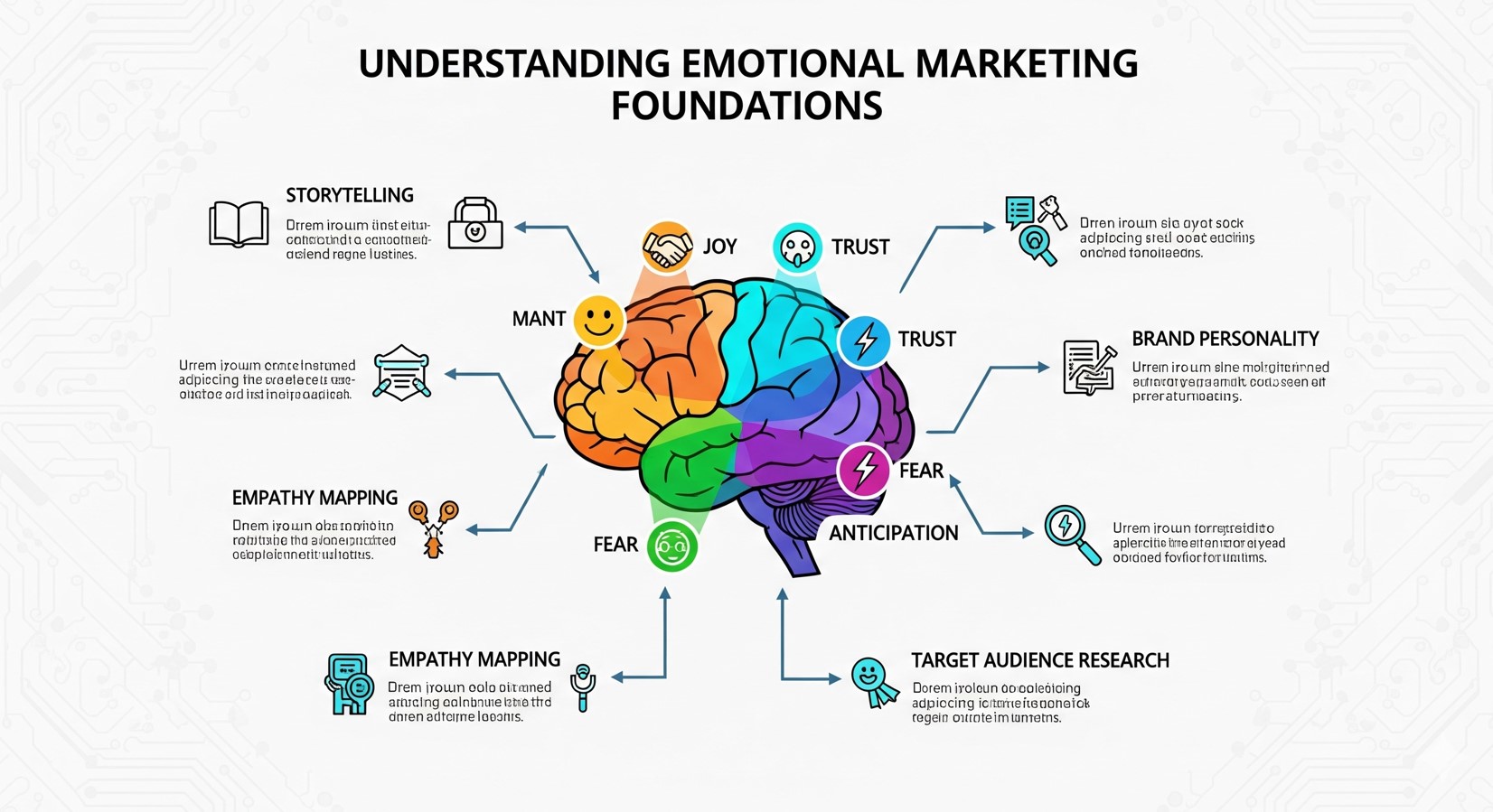
Emotional marketing operates on the principle that people make decisions with their hearts first, then justify those decisions with logic. Research consistently shows that emotional responses to advertisements have three times more influence on buying decisions than the advertisement’s content itself.
Centers dedicated to emotional marketing study these phenomena through various lenses. They examine neuroscience research that reveals how different emotions activate specific brain regions associated with memory formation and decision-making. This scientific foundation helps marketers understand why certain messages resonate while others fall flat.
The field draws from psychology, neuroscience, behavioral economics, and cultural anthropology. By combining insights from these disciplines, emotional marketing centers develop comprehensive frameworks for understanding consumer motivation across different demographics and market segments.
Core Services and Research Areas
Centers for emotional marketing typically offer several key services to help organizations implement emotion-driven strategies. Research and consulting form the backbone of their offerings, with teams of psychologists, data scientists, and marketing experts working together to decode consumer behavior patterns.
Educational programs represent another crucial component. These might include workshops, certification courses, and executive training sessions designed to help marketing professionals develop skills in emotional intelligence and consumer psychology. Many centers also offer online learning platforms with comprehensive curricula covering everything from basic emotional triggers to advanced neurological research applications.
Measurement and analytics services help organizations assess the emotional impact of their current marketing efforts. Using tools like facial coding, biometric monitoring, and advanced survey methodologies, these centers can quantify emotional responses and provide actionable insights for campaign optimization.
Research Methodologies and Tools
The methodologies employed by centers for emotional marketing span both traditional and cutting-edge approaches. Focus groups and interviews remain valuable for gathering qualitative insights, but modern centers supplement these with more sophisticated techniques.
Neurological testing, including EEG and FMRI scanning, allows researchers to observe brain activity in real-time as consumers view advertisements or interact with brands. This provides unprecedented insight into subconscious responses that consumers might not be able to articulate in traditional surveys.
Biometric monitoring tracks physical responses like heart rate, skin conductance, and eye movement patterns. These measurements reveal emotional arousal and attention patterns that inform everything from ad placement to website design optimization.
Digital analytics platforms now incorporate emotional sentiment analysis, processing social media conversations, customer reviews, and online behavior patterns to identify emotional trends and brand perception shifts.
The Psychology Behind Consumer Emotions
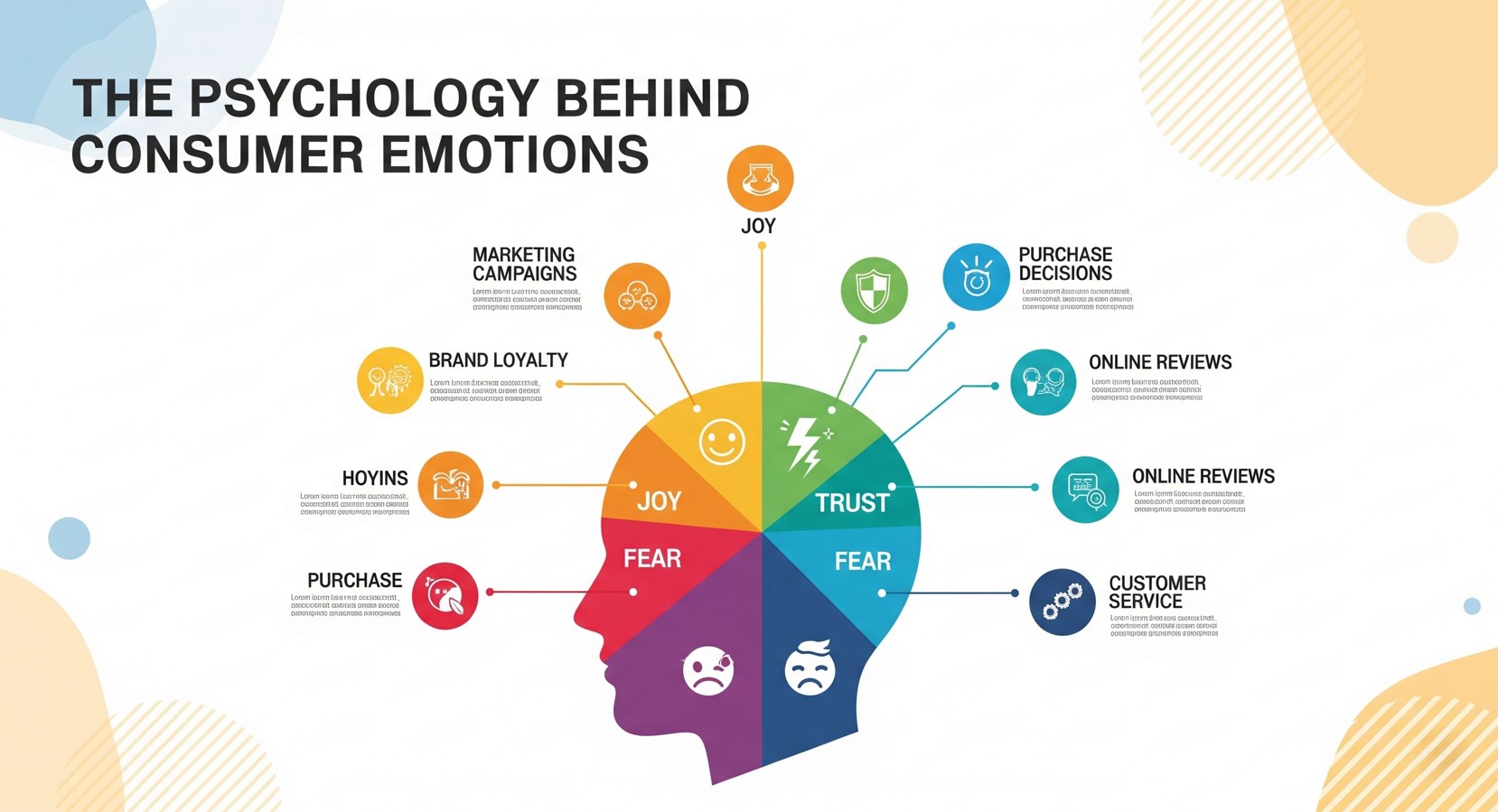
Centers for emotional marketing operate on well-established psychological principles about how emotions influence behavior. The limbic system, often called the “emotional brain,” processes information much faster than the rational prefrontal cortex, meaning emotional reactions often occur before conscious thought.
Six primary emotions typically drive consumer behavior: joy, fear, anger, disgust, surprise, and sadness. Each emotion can be leveraged strategically, depending on the product, audience, and desired action. Joy and excitement motivate sharing and positive associations, while fear can drive urgency and protective behaviors.
Social emotions like empathy, belonging, and status also play crucial roles in purchasing decisions. Centers for emotional marketing study how brands can authentically tap into these feelings without appearing manipulative or inauthentic.
Cultural context significantly influences emotional triggers, making it essential for global brands to understand regional differences in emotional expression and interpretation. What resonates in one market may be ineffective or even offensive in another.
Applications Across Industries
Principles of emotional marketing apply across healthcare, finance, retail, e-commerce, and technology. For instance, retail and e-commerce brands can create emotional connections that drive purchases and long-term loyalty (how to use emotional benefits in marketing to build stronger connections).
Healthcare marketing particularly benefits from emotional approaches, as medical decisions often involve significant fear, hope, and trust considerations. Centers help healthcare organizations communicate empathy and competence while addressing patient anxieties.
Financial services leverage emotional marketing to address complex feelings around money, security, and future planning. Banks and investment firms use insights from emotional marketing centers to build trust and reduce anxiety around financial decisions.
Retail and e-commerce applications focus on creating emotional connections that drive both immediate purchases and long-term loyalty. This includes everything from store atmosphere design to personalized digital experiences that make customers feel understood and valued.
Technology companies use emotional marketing principles to humanize complex products and services, making innovation feel accessible and beneficial rather than intimidating or overwhelming.
Measuring Emotional Marketing Success

Traditional metrics like click-through rates only tell part of the story. Emotional marketing centers use brand affinity, emotional sentiment tracking, and neurological testing to measure true campaign impact (the power of emotions in marketing).
Brand affinity metrics assess how emotionally connected consumers feel to a brand over time. These measurements often prove more predictive of long-term customer value than traditional engagement metrics.
Emotional sentiment tracking monitors how feelings toward a brand evolve across different touchpoints and time periods. This helps organizations identify which interactions strengthen emotional bonds and which may be creating negative associations.
Neurological testing provides objective measures of emotional response intensity and valence, removing the subjectivity inherent in self-reported feelings. These measurements can validate campaign effectiveness before full market deployment.
Ethical Considerations and Best Practices
Centers for emotional marketing emphasize ethical application of emotional insights. The goal should always be authentic connection rather than manipulation, building genuine relationships that benefit both brands and consumers.
Transparency becomes crucial when using emotional marketing techniques. Consumers increasingly value authenticity and can detect inauthentic emotional appeals. Centers teach marketers to align emotional messaging with genuine brand values and actual product benefits.
Respect for consumer autonomy remains paramount. Emotional marketing should enhance decision-making by providing relevant emotional context, not override rational consideration or exploit psychological vulnerabilities.
Cultural sensitivity training helps marketers avoid emotional appeals that might be inappropriate or offensive in different cultural contexts. This includes understanding how emotional expression and interpretation vary across demographic groups.
Future Trends and Innovations

The field of emotional marketing continues evolving as technology provides new ways to understand and respond to consumer emotions. Artificial intelligence increasingly powers real-time emotional analysis, enabling personalized experiences that adapt to individual emotional states.
Virtual and augmented reality technologies offer unprecedented opportunities to create immersive emotional experiences. Centers for emotional marketing are exploring how these technologies can deepen brand connections while maintaining ethical boundaries.
Predictive emotional modeling attempts to anticipate consumer emotional responses before campaigns launch, potentially reducing marketing waste and improving effectiveness. These models consider factors like current events, seasonal patterns, and individual consumer histories.
Integration with Internet of Things devices may eventually enable brands to respond to consumer emotions in real-time across various touchpoints, though this raises significant privacy and consent considerations that centers are actively addressing.
Cross-Cultural Emotional Marketing Strategies
Global brands face the challenge of varying emotional responses across cultures. What evokes joy, trust, or urgency in one market may be perceived differently in another. Centers for emotional marketing often study cultural norms, values, and emotional expression to guide brands in crafting campaigns that are both effective and respectful.
For example, while humor can be a powerful engagement tool in Western markets, it may not translate well in more conservative cultures. Similarly, concepts of status or familial connection may hold different emotional weight depending on regional values. By combining emotional insights with cultural intelligence, these centers help brands design campaigns that resonate universally without compromising authenticity.
Ethics in Emotional Marketing
With the increasing sophistication of emotional marketing, ethical considerations become paramount. Centers for emotional marketing emphasize the importance of transparency, authenticity, and respect for consumer autonomy. Brands are encouraged to use emotional insights to enhance consumer experiences rather than manipulate them.
Ethical emotional marketing involves aligning emotional messaging with actual product benefits, ensuring privacy and consent when collecting emotional or behavioral data, and avoiding exploitative tactics that prey on vulnerabilities. By adhering to these principles, brands can cultivate trust and long-term loyalty rather than short-term gains.
Future Trends: AI and Predictive Emotional Insights
Artificial intelligence and machine learning are transforming the field of emotional marketing. Predictive analytics allow brands to anticipate consumer emotional responses before campaigns launch. Companies looking to implement AI-driven strategies may benefit from guidance on digital marketing analytics for financial services, which includes tracking performance and consumer behavior.
Centers for emotional marketing are actively exploring how AI can be ethically deployed to enhance customer experiences. For example, predictive algorithms can personalize content based on real-time emotional feedback, ensuring that marketing resonates on an individual level without crossing ethical boundaries. The integration of AI promises to make emotional marketing more precise, scalable, and responsive than ever before.
Building Authentic Connections Through Emotional Intelligence
Centers for emotional marketing represent the evolution of consumer psychology from art to science. By combining rigorous research methodologies with practical application frameworks, these institutions help organizations create marketing strategies that resonate on both emotional and rational levels.
The most successful emotional marketing efforts feel natural and authentic rather than calculated or manipulative. Centers for emotional marketing help organizations combine data-driven insights with storytelling to create campaigns that resonate emotionally and rationally (role of storytelling in emotional marketing).
As consumer expectations for authentic brand relationships continue rising, the insights provided by centers for emotional marketing become increasingly valuable. Organizations that invest in understanding the emotional dimensions of consumer behavior position themselves to build stronger, more sustainable customer relationships in an increasingly competitive marketplace.
For marketing professionals looking to deepen their understanding of consumer psychology, exploring the resources and programs offered by centers for emotional marketing provides a foundation for more effective, ethically-grounded marketing strategies that benefit both businesses and consumers.
Frequently Asked Questions (FAQ)
What qualifications do instructors at centers for emotional marketing typically have?
Instructors usually hold advanced degrees in psychology, neuroscience, marketing, or related fields. Many combine academic credentials with practical industry experience, having worked for major brands or consulting firms specializing in consumer behavior.
How long does it take to see results from emotional marketing strategies?
Results vary significantly based on campaign scope and objectives. Brand perception changes might take months to measure, while immediate emotional responses to advertisements can be assessed within days or weeks of launch.
Are emotional marketing techniques effective for B2B companies?
Absolutely. Business decision-makers are still human and make emotionally-influenced choices. B2B emotional marketing often focuses on emotions like trust, confidence, and professional pride rather than the joy or excitement common in consumer marketing.
How much do programs at centers for emotional marketing typically cost?
Costs range from free online resources to executive education programs costing thousands of dollars. Many centers offer tiered pricing with basic workshops, comprehensive certification programs, and custom consulting services at different price points.
Can small businesses benefit from emotional marketing principles?
Yes, emotional marketing principles scale to businesses of all sizes. Small companies often have advantages in creating authentic emotional connections due to their closer customer relationships and more agile response capabilities.
What’s the difference between emotional marketing and traditional advertising psychology?
Emotional marketing centers use more sophisticated measurement tools and focus specifically on neurological and physiological responses. Traditional advertising psychology relied more heavily on surveys and focus groups without the benefit of modern brain imaging and biometric technologies.
How do centers for emotional marketing measure emotional impact?
Centers use a combination of neuroscience tools (EEG, fMRI), biometric monitoring (heart rate, skin conductance, eye tracking), and advanced analytics to quantify emotional responses. These metrics help determine which campaigns generate strong positive emotions and which fail to engage audiences effectively.
Can emotional marketing be applied to small-scale campaigns?
Absolutely. Even small businesses can leverage emotional marketing principles by focusing on authentic storytelling, customer empathy, and tailored experiences. Small-scale campaigns often benefit from more intimate customer relationships, making it easier to create genuine emotional connections.
How do emotional marketing centers stay up-to-date with consumer trends?
Centers combine academic research with real-world market analysis, continuously studying changes in cultural trends, technology adoption, and consumer sentiment. They often publish findings, hold workshops, and collaborate with brands to apply insights in practice.
Is emotional marketing relevant for highly technical or industrial products?
Yes. Even technical products have end-users with emotional drivers. Centers teach companies to frame complex offerings in ways that appeal to emotions such as trust, reliability, safety, and pride in innovation, making products more accessible and compelling.


